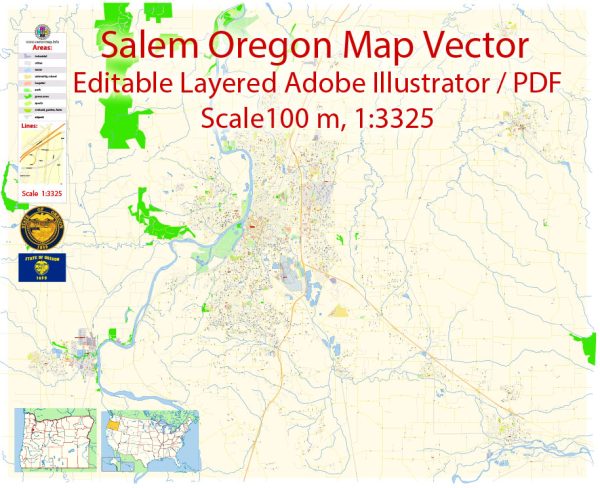A general overview of business and economic development in Salem, Oregon, United States.
Salem is the capital city of Oregon and is located in the Willamette Valley. Here are some key points regarding business and economic development in Salem:
- Economic Diversity: Salem’s economy is diverse, with a mix of industries contributing to its growth. Key sectors include government services, healthcare, education, manufacturing, agriculture, and technology.
- Government Presence: As the state capital, Salem is home to various government offices and services. This includes the Oregon State Capitol and agencies that play a role in shaping statewide policies.
- Education and Healthcare: Salem is home to Willamette University, a private liberal arts college, and Chemeketa Community College. Additionally, the city has healthcare facilities that contribute to the local economy.
- Agriculture: Agriculture is a significant part of the region’s economy, with the Willamette Valley known for its fertile soil. Farmers in the area produce a variety of crops, including berries, hops, and nursery products.
- Manufacturing and Technology: Salem has a growing manufacturing sector, with companies involved in the production of goods such as electronics, food and beverages, and transportation equipment. The city is also part of the broader technology landscape of the Willamette Valley.
- Transportation and Logistics: Salem’s strategic location along Interstate 5 and its proximity to Portland contribute to its role in transportation and logistics. This can be advantageous for businesses involved in distribution and trade.
- Entrepreneurship and Small Businesses: The city has a supportive environment for entrepreneurs and small businesses. Various resources and programs aim to foster innovation and economic growth at the local level.
- Tourism: Salem attracts visitors with cultural attractions, historical sites, and outdoor activities. Tourism can have a positive impact on the local economy, with visitors contributing to hospitality and service industries.
- Infrastructure Development: Ongoing infrastructure projects, such as improvements to transportation networks and public facilities, can positively impact the city’s overall economic development.
- Collaborative Initiatives: Salem may participate in regional and state initiatives aimed at fostering economic development, attracting investment, and creating job opportunities.
For the most up-to-date and specific information, I recommend checking with local economic development agencies, chambers of commerce, and city government sources in Salem. They often provide detailed reports, statistics, and plans related to business and economic development in the area.


 Author: Kirill Shrayber, Ph.D.
Author: Kirill Shrayber, Ph.D.